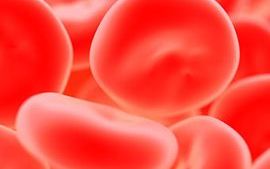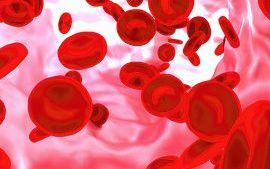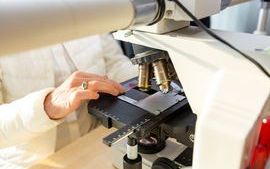- Published:
- 22 April 2025
- Author:
- Professor Jo Martin and the College's Pathology Portal team
- Read time:
- 5 Mins
The Pathology Portal was launched in August 2022 with the explicit aims of sharing learning resources in an equitable and accessible way for all pathology staff across all pathology disciplines. It was also designed to help support learning at a time of workforce shortages across pathology, ensuring that learning opportunities are expanded, supporting hard-pressed trainers.
We had the unique opportunity to work with a range of professional colleagues and bodies in this programme. Pathology has such a wide range of technical and clinical aspects to the various specialties that developing in-the-moment learning formats for these on a suitable stable platform was the first job.
We needed case-style content, where clinical information is provided, followed by image, data or video content, as well as multiple-option and single best answer question formats. It was key to allow trainees to ‘trail’ the clinical information, ask what might be done for the patient, follow the results of the first round of investigation, and then ask about subsequent tests in the same way that the clinical diagnostic or therapeutic process happens in real life.
We needed to able to use existing SCORM online learning formatted material, as well as links to external references. We also wanted to develop image atlas functions. Importantly, we wanted whole slide imaging capability to help us learn in the way that we will be doing in many of our disciplines, such as cellular pathology, neuropathology and haematology.
We linked in with the new national learning platform for health and social care across the UK, and were able to co-develop the capabilities of the NHS Learning Hub with the Technology Enhanced Learning Team at NHS England. Thus, case-based formats, formative and summative assessments, whole-slide imaging and a wide range of image and video format functionality were created, in partnership with developers and a wide range of users, including trainees and experienced pathologists from many specialties.
The Portal content has come from our community and has continued to grow. We currently have over 6,500 resources – all quality assured by a very active and expert editorial team who have been so generous with their time and support. Its usage has spread through word of mouth, training days, and attendance and presentation at various meetings and conferences within the College and in the wider network. It has grown organically, with histopathology, autopsy, dermatopathology, neuropathology and cytology leading the way, rapidly followed by immunology, genomics, haematology, infection-related disciplines, transfusion and clinical biochemistry. Our other areas are coming on stream or are developing rapidly. As an example, a reproductive science content hub has been started. In January 2025, an abstract and poster were presented at the Fertility Conference in Liverpool. The Portal's reproductive science section is growing, and it was great to have this exposure to introduce the Portal to a new, and often underrepresented, audience.
Over 5,000 active users are benefiting from these free resources. We invite you to join our growing community, if you haven’t already done so. For details on how to access the Pathology Portal, please see www.rcpath.org/profession/pathology-portal.html.
The resources have been accessed over 250,000 times, with users praising their quality and relevance for professional development. The Pathology Portal is now being used for more external quality assessments and teaching sessions. Gaps are being addressed through targeted recruitment in specialties such as microbiology and virology. The haematology subgroup is particularly interested in hearing from post-graduate doctors in training who might want to get involved with content, so please get in touch if you are interested. Dr Tanya Freeman reports on haematology on the Pathology Portal – read on to learn more about this.
For questions, suggestions or content contributions, please contact our team at [email protected]. We appreciate your ongoing engagement and contributions to the Pathology Portal.




